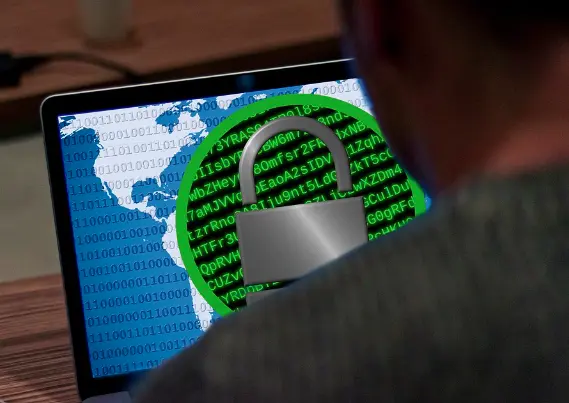In the world of online poker, security is of paramount importance. With the rise of cybercrime and the increasing number of online players, poker sites must take the necessary measures to protect their players from fraud, cheating, and other malicious activities.
The online poker industry has come a long way since its inception, and with technological advancements, players can now enjoy a seamless and secure gaming experience.
However, the consequences of not having proper security measures in place can be dire. In the past, several poker sites have suffered from data breaches, exposing sensitive information such as usernames, passwords, and financial details.

Players have also fallen victim to fraudulent activities, which can severely impact the game’s fairness. Not only does this harm the players trust in the site, but it can also damage the entire industry’s reputation.
Therefore, poker sites must implement robust security measures to ensure the safety of their players. Online casinos, according to information found on Top10Pokersites, use encryption technologies, and anti-fraud systems, among others, to mitigate potential security risks. You can visit Top10PokerSites to discover the best poker sites with top-notch security for real money gambling.
This article explores poker sites top security measures to protect their players and how they can contribute to a secure and enjoyable online gaming experience.
SSL Encryption
One of the most critical security measures poker sites use to safeguard their players is SSL encryption. SSL, or Secure Socket Layer, is a protocol that encrypts data transmitted over the internet. The encryption process converts plain text data into a series of characters that are indecipherable to anyone who does not have the decryption key.
In poker sites, SSL encryption is crucial in ensuring that players’ sensitive information is safe. When players enter their details or financial information, SSL encryption scrambles the data, making it unreadable to unauthorized parties. This means that even if someone were to intercept the data, they would not be able to make sense of it.
Moreover, SSL encryption ensures that the connection between the player’s device and the poker site’s server is secure. It prevents any third party from intercepting the connection and accessing the exchange data. This is particularly important when players make deposits or withdrawals from their poker accounts, as it prevents any fraudulent activity from occurring.
Two-Factor Authentication (2FA)
Two-factor authentication is an important step players must take to protect themselves from the lurking dangers of cyberspace. For poker players, simply relying on a username and password to safeguard their accounts just won’t cut it. Hence, poker platforms provide this vital step to protect players from hackers, scammers, and cyber-criminals.
Two-factor authentication is a robust security measure that adds an extra layer of protection to players’ accounts. With it, players are required to provide not only a password but also a second form of identification – often a unique code sent to their phone or email to access their account.
With two-factor authentication, even if a hacker manages to get their hands on a player’s password, they won’t be able to log in without that second form of identification. It’s like having a digital bouncer standing guard at the door to their account, ready to check IDs and keep out the riff-raff.
IP Blocking
IP blocking is a sophisticated security measure ensuring players enjoy their games in a safe and secure environment. Just imagine a bustling poker room with players from around the globe, each logging in from their unique IP addresses. It’s a colorful and vibrant community full of excitement and thrill. But hiding in the shadows are malicious players who seek to exploit weaknesses in the system and cheat their way to victory.
This is where IP blocking does the trick! The system can detect and block any suspicious or potentially harmful activity by analyzing each IP address that logs into the poker site. The process is quick and seamless, ensuring that legitimate players are unaffected. At its core, IP blocking is a powerful tool that helps poker platforms maintain their integrity and protect their players. And in today’s online gaming world, where security breaches are a constant threat, this kind of protection is essential.
Random Number Generators (RNGs)
RNGs are complex algorithms that produce random numbers to determine each hand’s outcome in online poker games. They are a critical component of fair play, ensuring that the distribution of cards is completely random and unbiased. But why are RNGs so crucial for poker sites? Simply put, they prevent any potential cheating or manipulation of the game.
Without RNGs, it would be possible for skilled players or hackers to predict the outcomes of hands or manipulate the distribution of cards. This could give certain players an unfair advantage, undermining the integrity of the game and ultimately leading to the loss of players’ trust and confidence in the site.
In addition, RNGs are also subject to rigorous testing to ensure their integrity. Independent auditing firms regularly review and test poker site RNGs to ensure they function properly and produce genuinely random results.
Conclusion
Online poker sites are aware of the potential security risks for their players and take various measures to ensure their platform is as safe and secure as possible. From robust encryption protocols to the use of Random Number Generators (RNGs), poker platforms are constantly working to maintain the integrity of their games and protect their players’ sensitive information.
However, players can also protect themselves by using strong and unique passwords, avoiding public Wi-Fi, and being cautious of scams. So the next time you log onto an online poker platform, you can rest assured that you’re playing in a secure and fair environment, thanks to the top-notch security measures.




